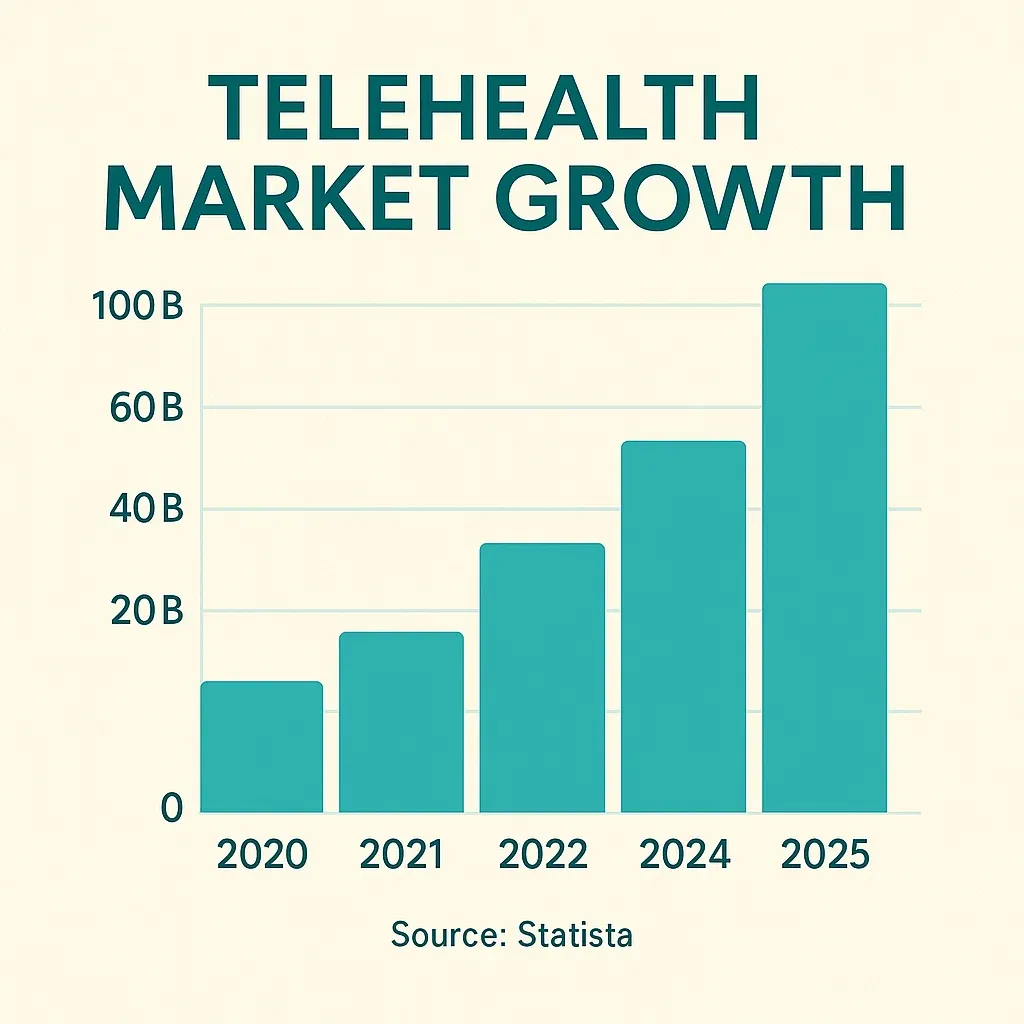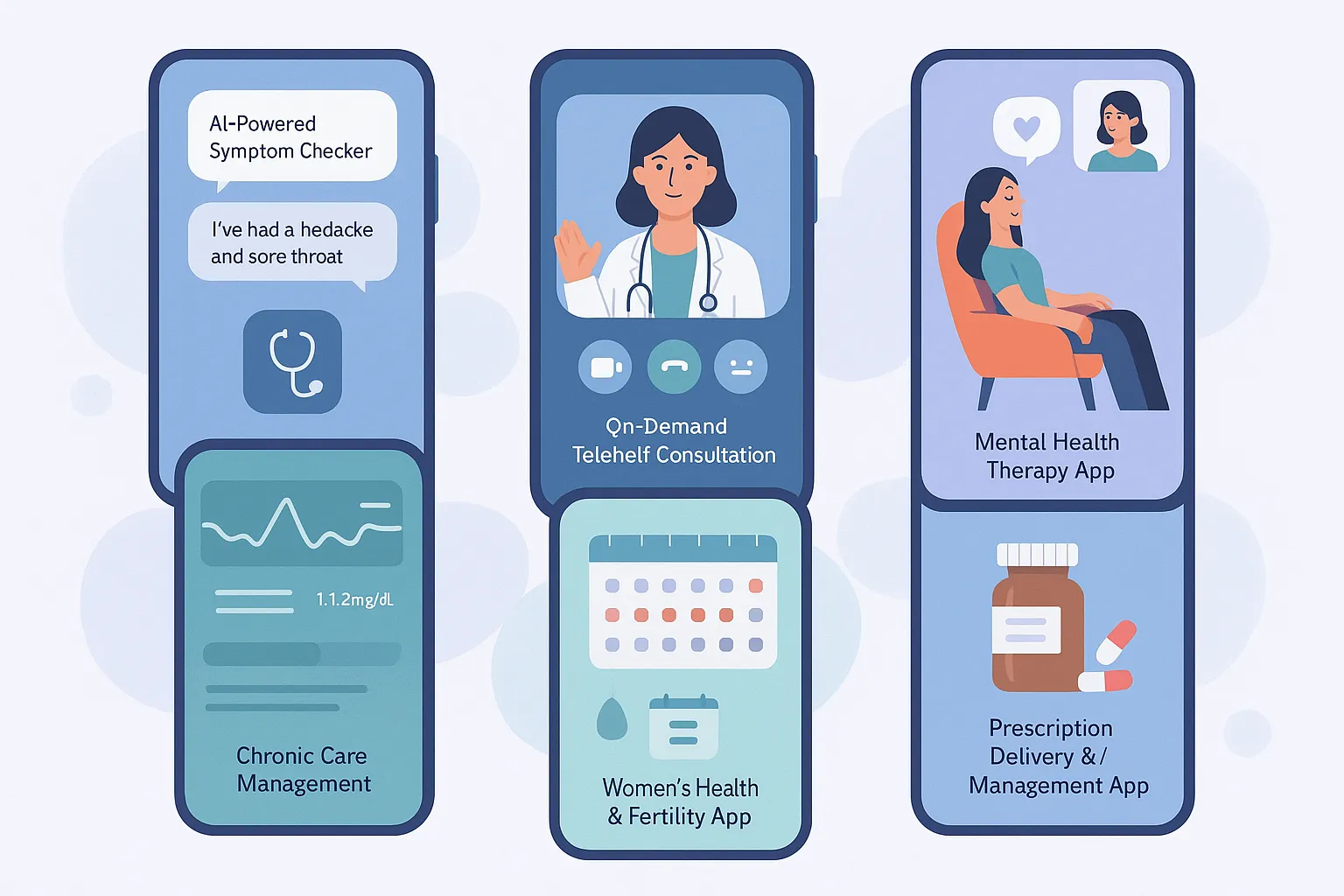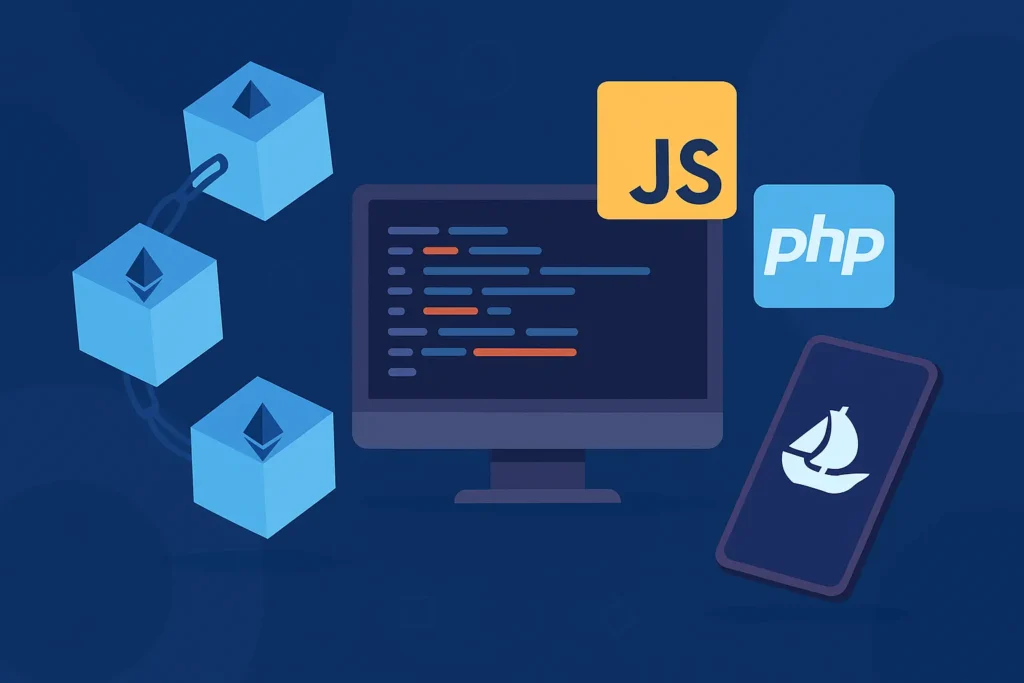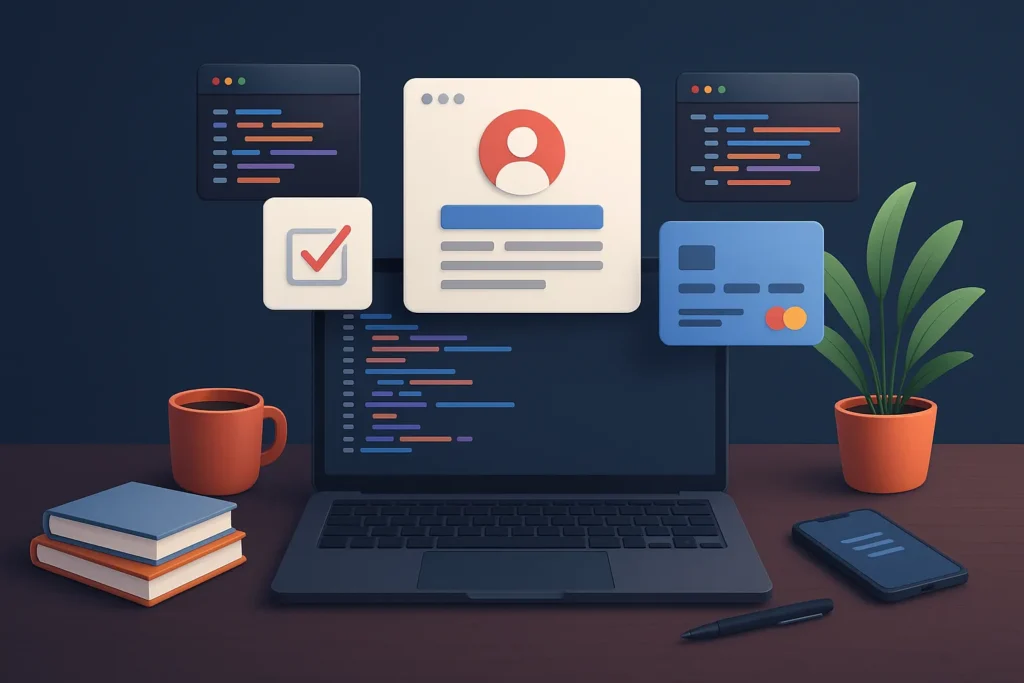Healthcare is undergoing a digital revolution—and telemedicine apps are leading the charge. In 2025, the demand for healthcare apps is not just a trend; it’s a tectonic shift driven by tech-savvy users, aging populations, and the aftereffects of global healthcare disruptions. From AI-powered diagnostics to remote patient monitoring, the market is booming with opportunity.
This blog will explore why healthcare and telemedicine apps are high-potential startup ideas for 2025. We’ll analyze emerging trends, highlight the most profitable app ideas, walk you through monetization strategies, cost considerations, and the fastest path to market using clone app development—with Miracuves at the forefront.
Why Healthcare and Telemedicine Apps Are a Hot Opportunity in 2025
The global digital health market is expected to exceed $650 billion by 2025, according to Statista, with telemedicine comprising a significant portion. Post-pandemic behavior has permanently altered how consumers interact with healthcare providers—80% of patients now prefer online consultations when possible.
Add to that the acceleration of wearable devices, AI diagnostics, and real-time patient data platforms, and it’s clear we’re only scratching the surface. Venture capital firms agree—healthtech saw over $39 billion in global funding in 2024 (CB Insights), showing investor confidence.
Meanwhile, rural areas, chronic care patients, and mental health sufferers are underserved. This presents a ripe opportunity for apps that can bridge gaps, improve care, and offer scalable revenue models.

Read more: How to Start a Health & Wellness Platform Business
Top Profitable Healthcare and Telemedicine App Ideas to Launch in 2025
1. AI-Powered Symptom Checker App
A smart diagnostic app that leverages AI and machine learning to interpret user symptoms and recommend possible conditions. It offers instant insights and connects users with physicians for further consultation. Perfect for those seeking fast, private health guidance in 2025.
Monetization Strategy: Freemium model + ad-free premium tier + clinic integrations
Why it works in 2025: Users want fast, anonymous answers before booking a doctor. It saves time and money.
2. On-Demand Telehealth Consultation App
This virtual care platform allows patients to connect with doctors via video calls for general medical advice, prescriptions, and follow-ups. It supports around-the-clock healthcare access—ideal for modern lifestyles and remote care.
Monetization Strategy: Pay-per-consultation + subscription for unlimited visits + white-labeled B2B licensing
Why it works in 2025: Convenience is king. Patients expect 24/7 access without visiting a clinic.
3. Mental Health Therapy App
A dedicated app for mental wellness, offering access to licensed therapists, journaling features, and guided programs. It ensures confidentiality and convenience, making therapy more approachable and consistent in today’s digital age.
Monetization Strategy: Weekly or monthly subscription + add-on therapy packages
Why it works in 2025: The global mental health crisis continues to worsen. Discreet digital therapy is the solution for millions.
4. Chronic Care Management App
An app tailored for chronic condition patients to log vitals, set medication reminders, and consult specialists. It empowers long-term care through smart device integrations and remote monitoring, reducing hospital visits and improving outcomes.
Monetization Strategy: Device integration packages + pharma partnerships + insurance model integration
Why it works in 2025: Chronic care accounts for 86% of healthcare costs. Tech-enabled management is cost-effective for users and providers.
5. Women’s Health & Fertility App
This specialized app helps users track cycles, plan pregnancies, and consult OB-GYNs virtually. Designed for privacy and empowerment, it supports women’s health with predictive tools and personalized care options.
Monetization Strategy: In-app purchases + affiliate health product sales + premium plan
Why it works in 2025: Women’s health is often underserved. A personalized, respectful digital tool creates loyalty and trust.
6. Virtual Physical Therapy App
A digital rehab solution offering guided video exercises, recovery tracking, and therapist consultations. Ideal for post-surgery or injury recovery, it delivers flexible, at-home care while reducing therapy costs.
Monetization Strategy: Pay-per-program + insurance-backed reimbursement + employer partnerships
Why it works in 2025: Aging populations, remote recovery, and AI motion tracking make this niche ready to scale.
7. Prescription Delivery & Management App
This app streamlines medication refills and delivery, offering features like pill reminders and pharmacy coordination. It’s a time-saver for seniors, chronic patients, and busy individuals who want seamless prescription care.
Monetization Strategy: Delivery fee + pharmacy partnerships + subscription for seniors
Why it works in 2025: Seniors and busy patients love automation. Add transparency and trust, and you win.
What Makes an App Profitable in the Healthcare and Telemedicine Niche?
Profitable apps in this space share several characteristics:
- Recurring Revenue: Subscriptions, memberships, and partnerships create predictable income.
- High Retention: Apps that solve chronic needs or offer emotional support tend to retain users longer.
- Low Overhead: Most services can be virtualized with minimal staff or facility expenses.
- Smart User Acquisition: Niche targeting, healthcare SEO, and B2B channels reduce CAC.
And let’s not forget the power of clone app development. Instead of building from scratch, using white-label clone solutions from Miracuves means you can:
- Launch in weeks, not months
- Cut development costs by up to 70%
- Focus on branding and scaling instead of reinventing the wheel
Cost to Build a Healthcare App in 2025
The cost of building a healthcare or telemedicine app can vary greatly based on features and complexity:
- Basic app: $20,000–$40,000
- Mid-level app with integrations: $50,000–$80,000
- Advanced AI-enabled app: $100,000+
Cost factors include:
- Number of user roles (patient, doctor, admin)
- Integration with EHR systems or APIs
- AI/ML modules for diagnostics or automation
- UI/UX design level and scalability infrastructure
That’s why Miracuves clone app solutions are a game-changer. They offer robust, scalable frameworks pre-built for:
- Doctor appointment booking
- Video consultations
- ePrescription workflows
- HIPAA-compliant infrastructure
Tips for Founders to Launch a Successful Healthcare App
- Start with an MVP: Don’t overbuild. Validate your core idea with real users before scaling.
- Prioritize UI/UX: Patients and doctors both expect ease-of-use and intuitive design.
- Validate your market: Interview target users, test your hypotheses, and align your feature set with real-world demand.
- Build for scale: Choose cloud-ready backends and modular code to avoid technical debt.
- Plan marketing pre-launch: Email waitlists, SEO blogs, healthcare influencer campaigns—momentum matters.
Read more: Top 10 Ideas for Healthcare and Telemedicine Business Startups
Conclusion
The healthcare and telemedicine sector is one of the most future-proof and profitable niches for entrepreneurs in 2025. Whether you’re targeting general medicine, mental health, chronic care, or pharmacy logistics, there’s plenty of room to innovate, serve, and scale.
By focusing on the right idea and leveraging clone app development, you can avoid the typical startup pitfalls and accelerate your time to market. The demand is there. The tech is ready. The patients are waiting.
At Miracuves, we help innovators launch high-performance app clones that are fast, scalable, and monetization-ready. Ready to turn your idea into reality? Let’s build together.
FAQs
Q:1 How much does it cost to build a healthcare app?
Between $20,000–$100,000+ depending on features and complexity.
Q:2 What features should a successful telemedicine app include?
Video calls, appointment booking, e-prescriptions, real-time chat, secure user records.
Q:3 Is it better to build from scratch or use a clone solution?
For speed and cost-efficiency, clone solutions are usually the smarter option.
Q:4 Can clone apps still be customized?
Yes, Miracuves clone apps are white-label and fully customizable to fit your brand and goals.
Q:5 Are clone apps secure and compliant?
Absolutely. Miracuves ensures all healthcare clones are built with HIPAA compliance and data protection in mind.
Q:6 How long does it take to launch a clone app?
Typically 2–4 weeks, depending on the level of customization needed.
Related Articles:







